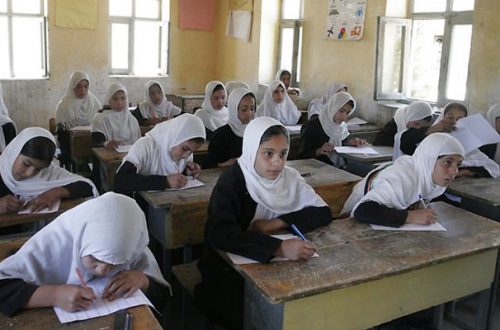Following the withdrawal of Soviet troops from Afghanistan back in the 1980s, the US effectively decided that they had no national interests in Afghanistan. Rather than attempt to build a peace, and elements in the US administration argued for this, Afghanistan was forgotten about. The events of 1989 in Europe and Russia also added to the sense that Afghanistan was a stage that Western nations could safely neglect, and neglected it was by the first Bush Presidency and the Clinton Presidency in turn. We now know this was a serious mistake. Back in 2004, Steve Coll was interviewed about his book on the abandonment of Afghanistan, and was asked how the Taliban sneaked under the radar:
Back to this parallel story of Afghanistan — why did we fail to recognize the Taliban’s threat? Did anyone sound the alarm? Everyone just seemed so relaxed about this bizarre government coming to power, even after they started imposing their oppressive rules.
That’s another one that’s hard to understand. Probably the biggest single factor was indifference. A sense that there was nothing at stake in Afghanistan, a collective unspoken wish for this whole place to go away and not be a problem. The Taliban brought a brutal kind of order to the country and created a totalitarian kind of stability. There were plenty of people whispering into the ears of American officials, assuring them that the Taliban were tolerable. The Pakistanis, who had created them, wanted us to accept them. The Saudis also wanted us to accept them. The Saudis argued again and again, “Look, we started out this way. We had a particularly evangelical, puritanical view of Islam, and look at us, we’ve moderated, we’ve accommodated the world.”
Wow.
Yes, the Saudis said, “If you’re just patient with these guys, they will moderate too.” I don’t know how many Americans believed that, but there was no plausible alternative that anyone could think about. Even those who disdained the Taliban and wanted to do anything possible to promote its decline were not prepared to supply more weapons for the civil war, or claim more innocent Afghan deaths. For what?
Sound familiar? We are doing it again. Left wing columnists are now the ones whispering platitudes about the Taliban. The BBC organised an hour and half long Talk to the Taliban Have your Say session for the World Service, the Taliban managing to obtain more airtime than Jonathan Ross, and nearly as much sympathy as Andrew Sachs. Supposedly, the Taliban were going to re-open schools for schools just before the NATO invaded. The British public, along with Simon Jenkins unsurprisingly, also want out.
The government, and the opposition, have failed to make the strong case for not repeating past errors in Afghanistan, and have been unable to match the stories of perceived (or real) equipment shortages, a media driven by the latest car bombs, and the regrettable losses of brave UK soldiers. In contrast the Taliban merely have to keep blowing up Afghans with car bombs, throwing acid at women, and shooting aid workers to create the perception of failure in Afghanistan and sap the will of of the democratic nations to support the democratic Afghanistan. We are already undermining Afghanistan’s future with our willingness to submit to the Taliban’s propaganda .
Terry Galvin is currently in Afghanistan.
From the headlines leaping off the front pages of newspapers around the world these days, you’d think this city was Phnom Penh in the days before the Khmer Rouge rolled in, or Saigon in the hours before the fall. Given the London Telegraph’s declaration that Kabul is “as dangerous as Baghdad at its worst,” you’d expect to find Taliban armies already at the city gates, and nothing left to do but cut a deal and get out.
This is exactly what the Taliban’s canny propagandists want the world to think about Kabul, and for variously sinister and conflicting reasons, this is the same picture of the city that diplomats from London to Riyadh have been painting lately. What all this drama obscures, however, is the reality of a city that is boisterous and booming and yet burdened by a wholly different sort of dread.
[…]
There is cruel and savage poverty here, but also much happiness, and Kabulis aren’t for turning back. But the corrosive defeatism that is now so fashionable in polite society is forcing a fatal feedback loop into play all over the city, and in this way the “Spiral of Doom” headlines mutate into a self-fulfilling prophecy.
The spiral entraps even the bravest Kabulis, because if it’s all coming to an end, there’s no point in sticking one’s neck out in this country’s long war for a transparent, accountable democracy. It pulls into itself even the “corruption” that has come to characterize the Karzai regime: If this isn’t going to last, the thinking goes, then you might as well get what you can while the getting’s good.
Terry Glavin also tells of the diplomats undermining Afghan democracy.
While the Taliban cannot win, we can certainly choose to lose.
